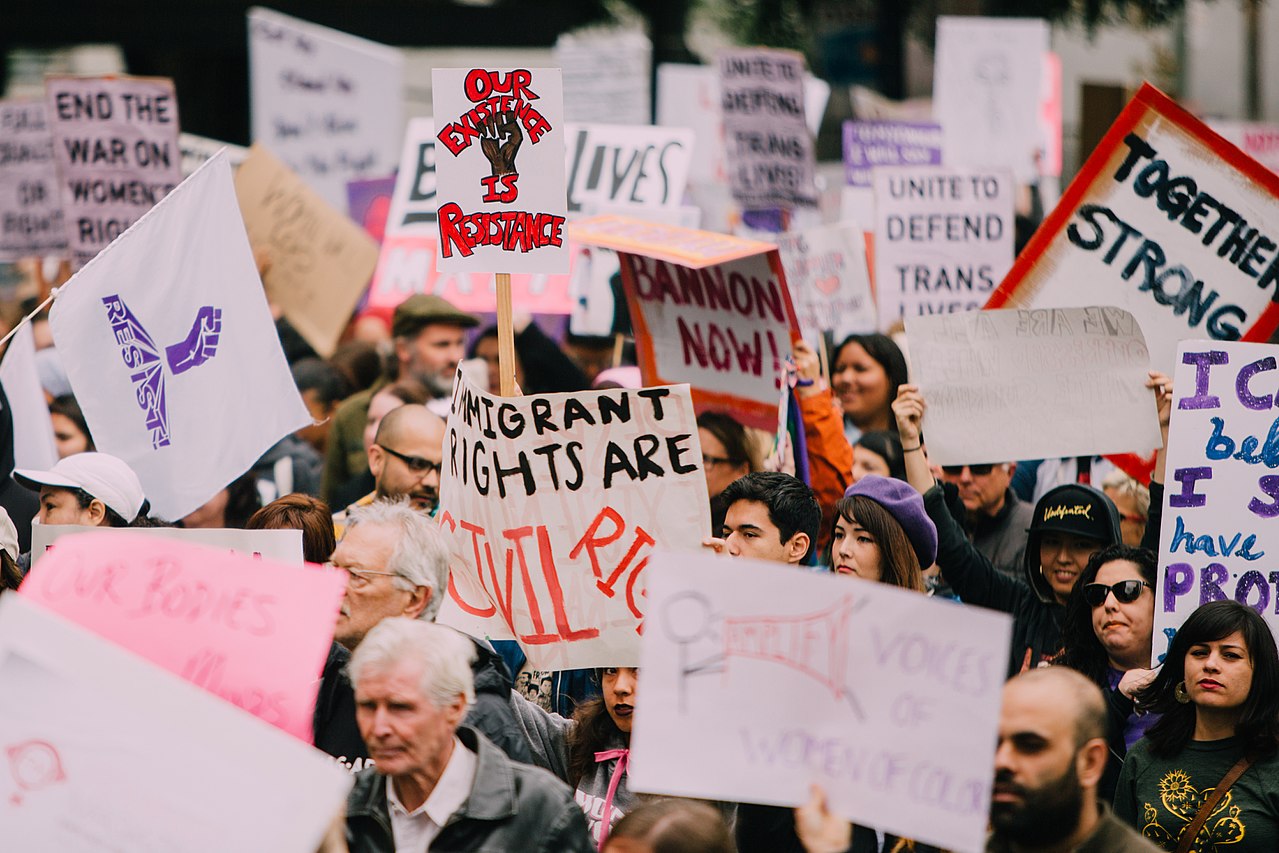Here is a personal dilemma that illustrates many of the challenges women face during this time of pandemic.
Right now, I am deciding between sending my child to a school, which is probably not safe, and quitting a job I love. I cannot manage home-schooling, working, and taking care of my family — and am falling apart.
I imagine I am not different from many women on this International Women’s Day, although I know I am privileged because I can make the choice to reduce my income and still survive.
I organized health-care workers and janitors across North America for Service Employees International Union (SEIU) for decades and am mourning friends and colleagues who are dead because they lacked the protection to do their jobs.
During the early days of the lockdowns, as we struggled through the pandemic, we saw a renewed collective spirit emerging in our communities. Now as the pandemic moves into its second year, the pressure to return to normal without any protections is mounting.
This year the federal Liberal government set the theme for International Women’s Day 2021 as “Feminist Recovery.” I will not abide a feminist recovery in name only.
Before International Women’s Day, I received this powerful statement from my friend who is a part of Women For Rights and Empowerment (W4RE) in Alberta detailing what is going on in her province and what they are mobilizing for and against. I shared it and I found many of us across the country are facing similar issues.
The short-term assistance to address the pandemic is ending and now we must fight for long-term solutions to address the real issues in our communities, lest the neoliberals take over and use the recovery from this pandemic as a way to devastate us all.
I will not rest until we make sure that our seniors and the people who care for them, the people who clean our buildings, the people who we deemed essential during this pandemic are paid better, have sick days, and have the protections they need to keep themselves and their families safe.
I will not rest until our schools and senior-care facilities are safer so we don’t have to make these horrible choices ever again.
In March 2020, Armine Yalnizyan began to point out that this recession was different from the recessions of the past because it was a “she-cession” not a “he-cession.” What she noticed was this time the female-dominated sectors suffered most from the forced economic downturn. Women comprised the majority of people losing their jobs.
In past recessions, men lost their jobs at a greater rate than women. When recovery happened, women then joined the workforce in greater numbers.
This time, CIBC Economics, using Statistics Canada data, has shown that all the jobs lost in 2020 were among workers who earned below-average wages. The report also shows that high-wage earners gained almost 350,000 jobs in 2020.
Those numbers tell us that we must target the recovery from the pandemic to help those who have experienced the greatest effect, the poor and women.
Here are some ways to get involved in making the systemic changes which will build a recovery for all of us:
- There is a lot of talk about women-centred workplaces. In order to address the danger of further increasing the gender gap, we need guaranteed sick days, family leave and work flexibility for all. We also need to ensure access to protective equipment and workplace protections for everyone. Please work with feministrecovery.ca and other similar organizations to demand workplace changes.
- If we want to address domestic violence, we must understand the role of safe, affordable and permanent housing in providing a long-term solution for addressing vulnerability among women, girls, and gender-diverse people. Before the pandemic, women, girls and gender-diverse people were more likely to be among the “hidden homeless.” Due to the spike in reported cases of domestic violence, there has been an increase in funding for emergency spaces and shelter space in Canada. These are important short-term solutions. However, when these solutions are exhausted, too often women are forced to return to dangerous living conditions. We need policy tools, such as a national housing benefit, developed and implemented with an eye to ensuring it meets the needs of women, girls, and gender-diverse peoples. Work with activists who are advocating for long-term, systemic ways to address gender violence and housing.
- This pandemic has changed what safe schools mean for many of us. We need better ventilation and similar upgrades to schools to be a priority. We need to partner with advocates in every province to make sure that in the long term we are working on investing in our schools rather than gutting them for short-sighted savings. This article lists organizations in provinces which are working improve our schools. We also need to work on child-care solutions which meet our needs if lockdowns and quarantine continue. We need affordable, quality child care, not just inadequate tax credits from the government.
- One of our biggest failures as a country during this pandemic has been in our inability to protect seniors. rabble.ca was among the first publications to sound the alarm about the dangers of the for-profit senior-care system in Canada. Women are 90 per cent of paid staff in long-term care. They must be part of the discussion about changing this sector.
These are just some of the long-term changes that a feminist recovery will require. We need to make sure that this important opportunity to meet our needs as a society is not reduced to a catchy meme.
This International Women’s Day, how do we make sure that a feminist recovery from the pandemic is really possible?
Maya Bhullar is the Activist Toolkit coordinator at rabble.ca. She has over 15 years of professional experience in diverse areas such as migration, labour, urban planning and community mobilization.
Image credit: Molly Adams/Wikimedia Commons



